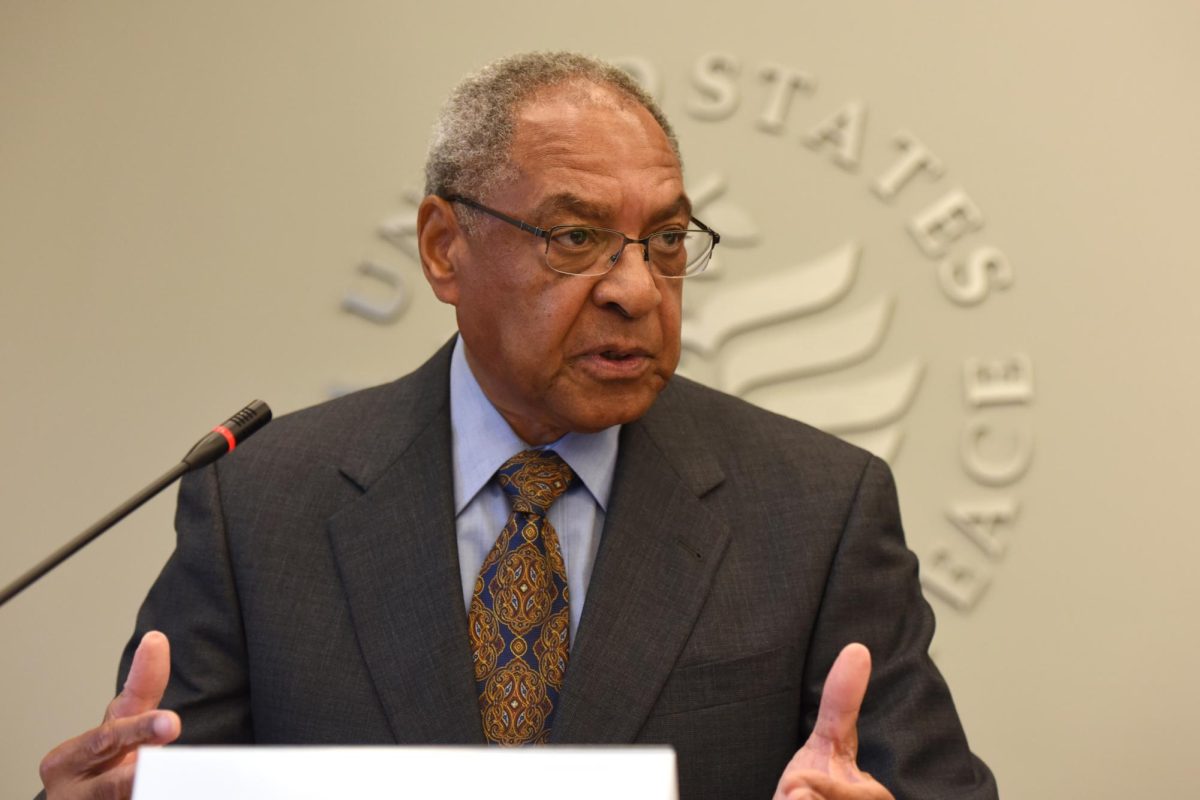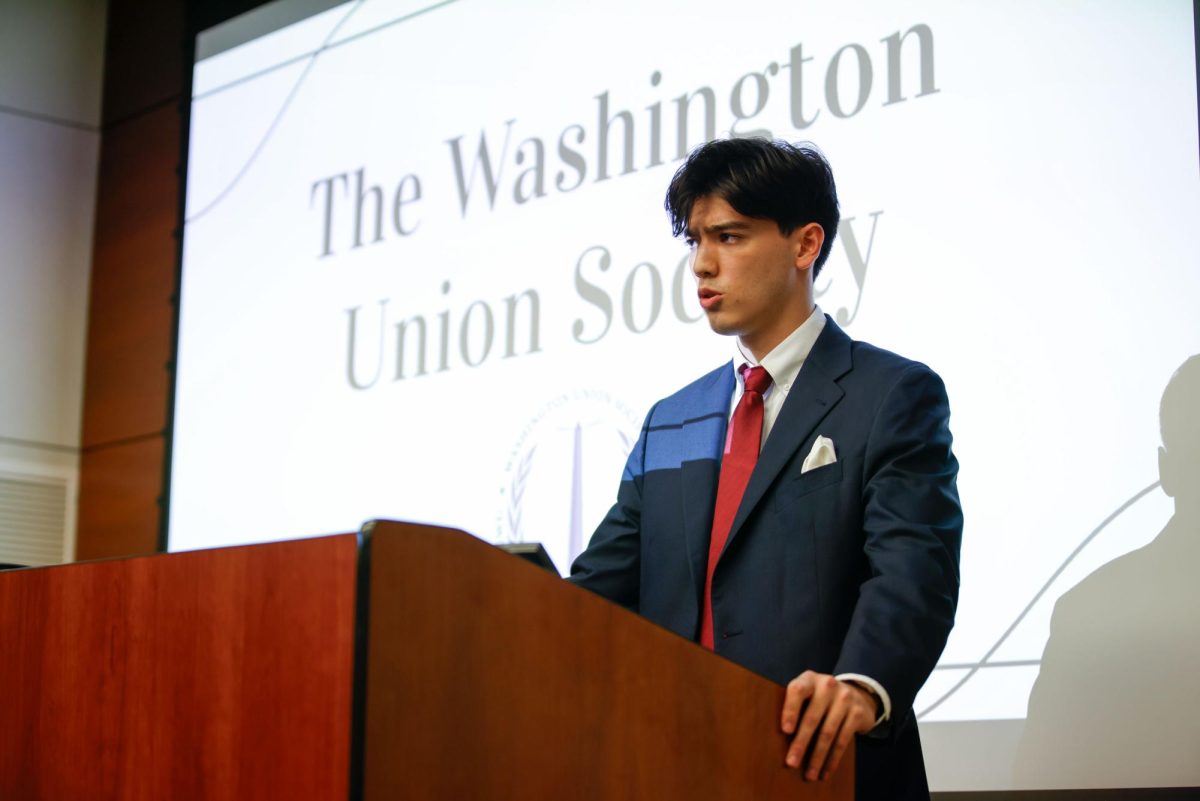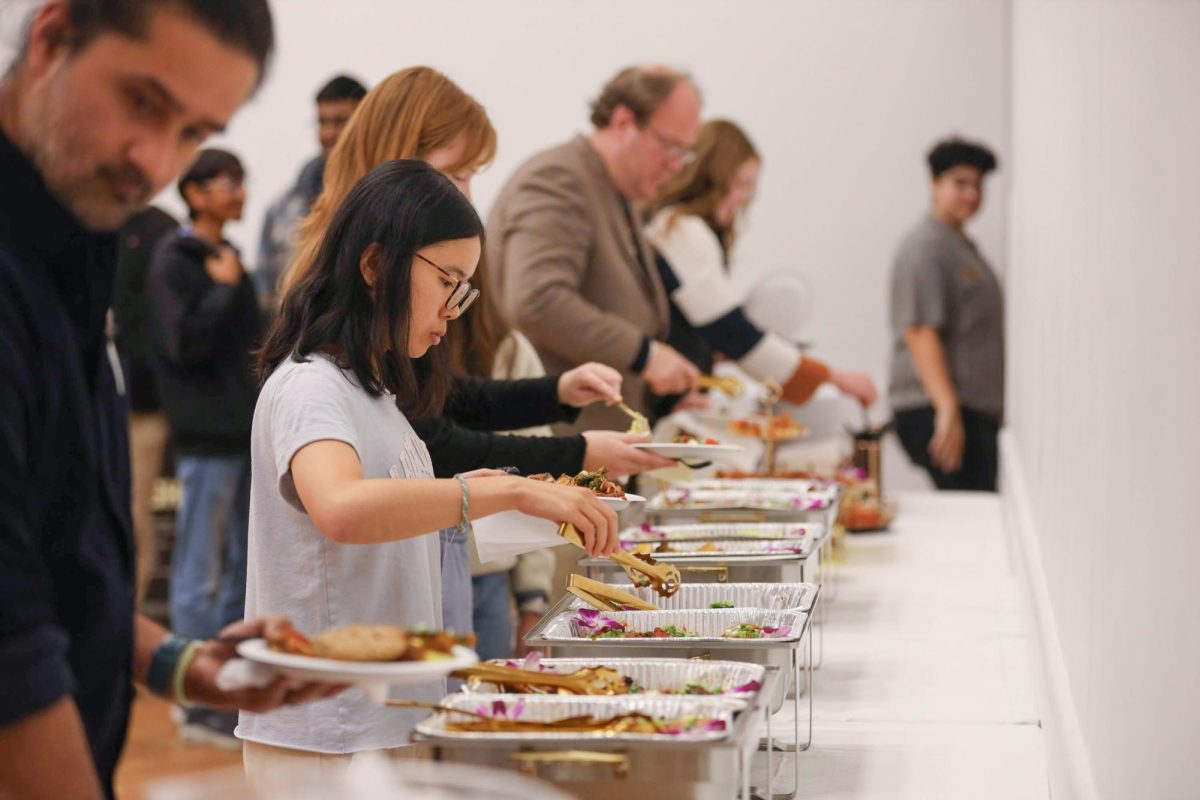A former ambassador discussed his career and how Rev. Dr. Martin Luther King Jr. impacted his professional decisions at the Elliott School of International Affairs on Thursday.
George Moose said King’s opposition to U.S. involvement in the Vietnam War, which he decried as imperialist and a diversion of money from domestic programs created to help Black people, led Moose to question whether he should be representing the United States abroad. The conversation with Professor Chris Kojm of the Leadership, Ethics and Practice Initiative was hosted by the Elliott School.
Moose said he faced decisions without clear answers many times throughout his career in Vietnam, Rwanda and at home, navigating de-escalation and negotiation in the context of tense political landscapes marred by hostility.
“I remember understanding the need to be mindful of what the consequences are when you fail, but we still are a very, very complicated government,” Moose said.
After receiving a bachelor’s degree in American Studies from Grinnell College, Moose entered the U.S. Foreign Service in 1967 and was assigned to Vietnam, Barbados, the State Department’s Office of Southern African Affairs and the U.S. Mission to the United Nations. Other than serving as U.S. ambassador to Benin from 1983-86 and to Senegal from 1988-91, his diplomatic assignments also included Alternate Representative to the United Nations Security Council from 1991-92 and Assistant Secretary of State for African Affairs from 1993-97.
In 2002, Moose attained the rank of career ambassador, a title awarded in recognition of “especially distinguished service over a sustained period” to 62 members of the Foreign Service since the creation of the title in 1955, according to the State Department.
As a student studying Vietnamese in the Foreign Service at the beginning of his career, Moose said he remembers King’s “deep criticism” of U.S. involvement in Vietnam as against the self-determination of the Vietnamese people and for money from poverty programs to war efforts in his final Sunday sermon March 31, 1968, held at the Washington National Cathedral before his assassination the following month.
Moose said although challenging American involvement in the Vietnam War jeopardized King’s relationship with President Lyndon Johnson and other officials who were instrumental in implementing civil rights reform, he said King preached anti-war messages with confidence.
“One of the things he constantly sought to do is to draw the parallels and linkages between what he regarded as imperialistic and the problems of racism, injustice and poverty here,” Moose said.
Moose said he acknowledges that King and the Civil Rights Movement allowed him the possibility of working in the Foreign Service and that there is an “irony” in his Foreign Service assignment to Vietnam during the war despite King’s opposition to the U.S.’s involvement in the Vietnam War.
“As a foreign service officer studying Vietnamese about to go to Vietnam, King’s words did not give me great comfort or confidence in the decision that I had taken to join the State Department,” Moose said.
Moose said his most challenging experience as assistant secretary of African affairs was navigating the U.S.’s failure to acknowledge instability in Africa leading up to the Rwandan Genocide. Moose said whenever he testified on the Hill, members of Congress weren’t concerned with sending aid.
“The questions I got weren’t, ‘How can we help?’” Moose said. “It was ‘Why do we need all these embassies in Africa?’”
Moose said the United States played a crucial role in peacekeeping, ushering in the transition to democracy for many West African nations but did not foresee the 1994 genocide of the Tutsi ethnic minority group in Rwanda and take the necessary action to understand the magnitude of the region’s political tensions before it was too late.
“I think, for all of us who were involved, there was deep regret that we weren’t more shrill and aggressive and vocal in challenging the administration,” Moose said.
Moose said there were signs of violence and potential genocide in Rwanda but that global awareness of these signs was inadequate. He said this taught him to be willing to listen and learn and to question his assumptions.
“Rwanda was just a reminder of how little we know and how little we should presume we know,” Moose said.











